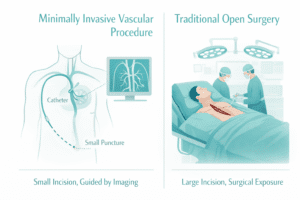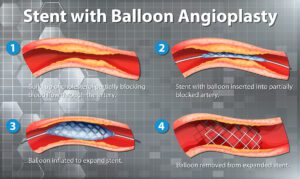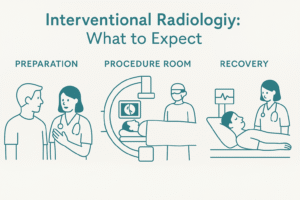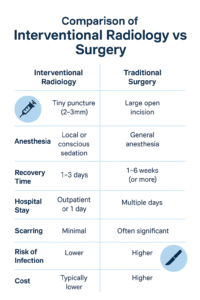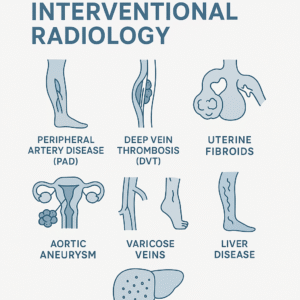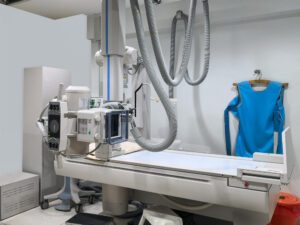Aria Vascular Specialists Explain Their Role in Vein & Artery Health
Your body depends on healthy blood flow to function. Arteries deliver oxygen-rich blood from your heart, and veins return it after delivering nutrients. When a “traffic jam” occurs in these vessels—such as a blockage, clot, or weakening of the artery wall—it can lead to serious health problems. That’s where a vascular surgeon steps in.
At Aria Vascular, our board-certified vascular surgeons are dedicated to diagnosing, treating, and managing a wide range of artery and vein conditions, using both surgical and non-surgical techniques to improve long-term vascular health.
What Does a Vascular Surgeon Do?
A vascular surgeon is a medical specialist who treats diseases of the blood vessels outside the brain and heart. They’re trained to restore healthy circulation, reduce the risk of stroke and blood clots, and improve quality of life for patients with chronic or acute vascular issues.
Vascular Surgeons Do More Than Surgery
Despite the title, vascular surgeons don’t just perform operations. In fact, many spend the majority of their time helping patients manage their conditions without surgery. Through medication, lifestyle changes, exercise plans, or minimally invasive procedures, vascular surgeons aim to provide the right treatment for each individual.
As one surgeon explained, “I spend 80% of my time trying to talk my patients out of having surgery.” This patient-first approach ensures care is based on what’s most effective, not just what’s available.

Types of Procedures Vascular Surgeons Perform
Vascular surgeons are uniquely qualified to offer both open surgeries and minimally invasive endovascular procedures, including:
- Angioplasty and stenting
- Bypass surgery
- Endovascular aneurysm repair (EVAR)
- Thrombectomy (blood clot removal)
- Carotid endarterectomy
- Varicose vein treatments (laser or radiofrequency ablation)
Some of these procedures are outpatient-based, allowing for faster recovery and fewer complications.
Conditions Vascular Surgeons Treat
Vascular surgeons manage diseases that affect veins and arteries throughout the body, such as:
- Peripheral Artery Disease (PAD)
- Varicose veins and venous insufficiency
- Carotid artery stenosis
- Abdominal or thoracic aortic aneurysms
- Deep Vein Thrombosis (DVT)
- Pulmonary embolism
- Chronic leg pain or ulcers due to poor circulation
- Dialysis access planning
How Are Vascular Surgeons Different From Other Specialists?
Unlike some specialists who focus on one type of treatment, vascular surgeons are treatment agnostic—meaning they offer all available options and recommend what’s best for your specific needs.
They are not cardiologists, who treat heart conditions, and they are not limited to cosmetic vein treatments like some vein clinics. Instead, they manage complex conditions in every part of the vascular system except the heart and brain.
When Should You See a Vascular Surgeon?
You may benefit from seeing a vascular surgeon if you:
- Have leg pain or cramping while walking
- Experience swelling in the legs or ankles
- See visible varicose veins
- Have a non-healing wound or foot ulcer
- Have high risk factors like diabetes, smoking, or high blood pressure
- Were recently hospitalized for a blood clot or stroke
Often, your primary care provider will refer you, but you can also schedule a consultation directly if you notice persistent symptoms.
What to Expect During Your Visit
At your first visit with a vascular surgeon at Aria Vascular, you’ll undergo:
- A thorough physical examination
- A review of your symptoms and health history
- Possible non-invasive tests, like ultrasound, ankle-brachial index (ABI) , or CT angiography
- Have a non-healing wound or foot ulcer
- Have high risk factors like diabetes, smoking, or high blood pressure
- Were recently hospitalized for a blood clot or stroke
Based on your condition, your provider will create a personalized treatment plan, which may or may not include surgery.
Vascular Surgeons Build Lifelong Relationships
Many vascular conditions are chronic and progressive, meaning you may need ongoing care over the years. Unlike some specialists who perform a procedure and discharge the patient, vascular surgeons often build long-term relationships, helping patients manage their vascular health for life.
At Aria Vascular, we believe continuity of care leads to better outcomes and greater peace of mind.
Why Choose Aria Vascular?
Our team of board-certified vascular surgeons combines advanced technology, compassionate care, and minimally invasive techniques to deliver the highest quality of care. We proudly serve patients throughout Stockton, Lodi, Manteca, Modesto, and beyond.
Whether you need preventive screening, a second opinion, or treatment for an existing condition, Aria Vascular is here to help.
💙 Concerned about your circulation, leg pain, or varicose veins?
🩺 Schedule your consultation today with a vascular expert at Aria Vascular:
Frequently Asked Questions about Vascular Surgeons
What is a vascular surgeon?
A vascular surgeon is a doctor who treats diseases of the arteries and veins using both surgery and less invasive methods.
Do all vascular patients need surgery?
No. Many vascular issues can be treated with medications, lifestyle changes, or non-surgical procedures.
What’s the difference between a vascular surgeon and a cardiologist?
Cardiologists treat the heart. Vascular surgeons treat arteries and veins throughout the rest of the body.
How do I know if I need a vascular surgeon?
If you have symptoms like leg pain, swelling, or slow-healing wounds—or risk factors like smoking or diabetes—you may benefit from seeing a vascular surgeon.


